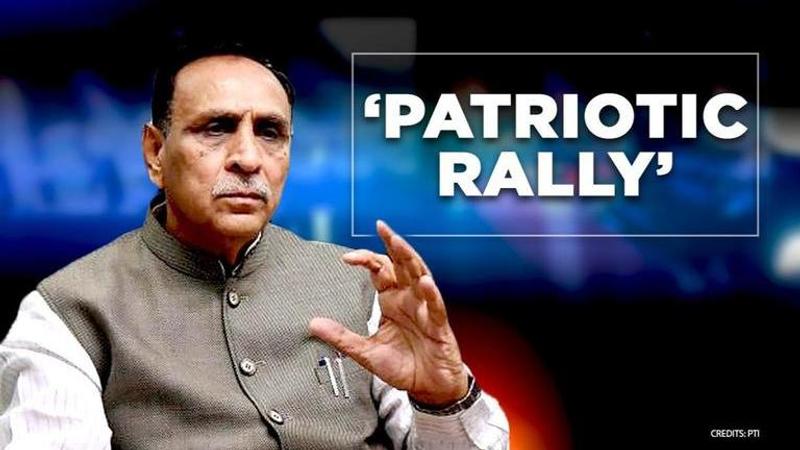Published 11:11 IST, February 10th 2020
As non-BJP states pass anti-CAA resolutions, Gujarat CM Rupani enacts 'befitting reply'
Gujarat CM Vijay Rupani on Sunday took part in a rally organized in support of CAA and termed it a befitting reply to those opposing the newly amended law.

Gujarat Chief Minister Vijay Rupani on Sunday took part in a rally organized in support of the Citizenship Amendment Act (CAA) and termed it a befitting reply to those opposing the newly amended law. "Our rally is a befitting reply to those who are against the Citizenship law and also to the members of the tukde-tukde gang," said Vijay Rupani while talking to media persons in Surat.
'This rally is a patriotic rally by the people of Gujarat'
"We extend our support for the Citizenship Amendment Act (CAA). This rally is a patriotic rally by the people of the entire state," he added. The newly enacted law is facing stiff opposition in several parts of the country with some states including Kerala, West Bengal, Rajasthan and Punjab refusing to implement it. Meanwhile, in BJP ruled states score of people have come in support of the new law.
Three states have passed an anti-CAA resolution
There are a whopping 144 petitions on the CAA pending before the Supreme Court. The top court had last month refused to stay the law, giving the centre four weeks to respond to them. In addition to Rajasthan, Kerala and Punjab, Bengal has also passed an anti-CAA resolution. A third Congress-ruled state - Chhattisgarh - is expected to pass a similar motion in its Assembly.
Soon after the law was passed by the Parliament, a series of violent protests erupted in parts of the country. Students from educational institutions such as Aligarh Muslim University in Uttar Pradesh, Jamia Millia and JNU in Delhi hit the roads to protest against the law. Later, the protest turned violent and people set buses on fire, burnt public properties including railway tracks and offices in states like West Bengal and Uttar Pradesh.
The government says that the CAA helps non-Muslim minorities from Muslim-majority countries if they fled religious persecution and entered India before December 31, 2014. However, critics believe the CAA discriminates against Muslims, violates secular tenets of the Constitution and, with the NRC (national register of citizens) and NPR (national population register), can be used to target Muslims.
The CAA grants citizenship to Hindu, Sikh, Jain, Parsi, Buddhist and Christian refugees from Pakistan, Afghanistan, and Bangladesh, who came to India on or before December 31, 2014.
(With agency inputs)
Updated 11:11 IST, February 10th 2020




